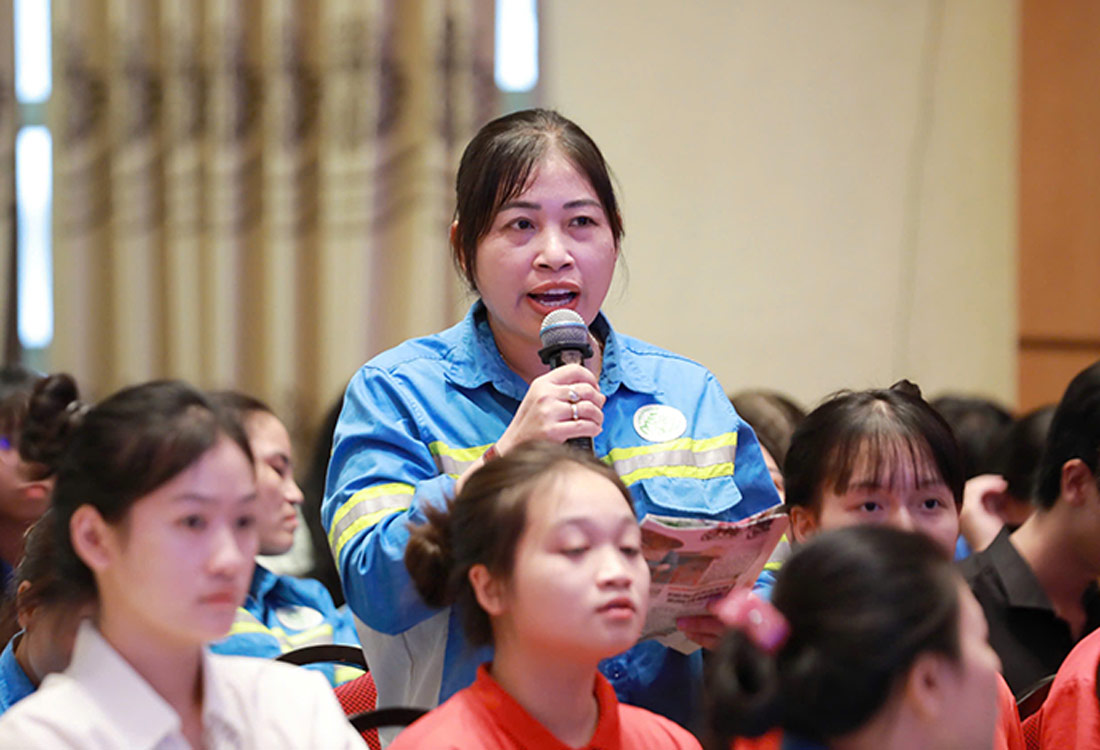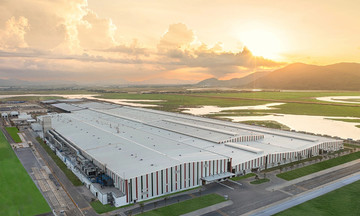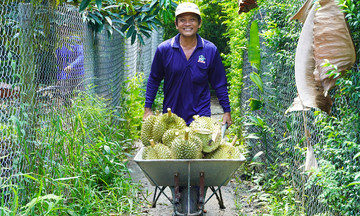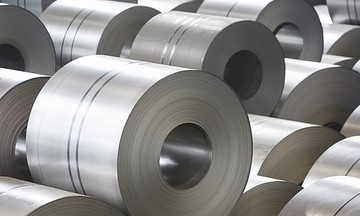This issue was raised by Luong Thi Huong, a sanitation worker at the Hoan Kiem branch of Hanoi Urban Environment Company Limited (Urenco), at the Workers for the Environment Forum on the afternoon of 19/9.
Since 2025, household waste has been required to be separated into three categories: recyclable materials, food waste, and other waste. Sorting waste at the source helps utilize recyclable materials, reduces the amount of waste in the community, and saves costs on collection, transportation, and processing.
However, this practice is facing challenges due to the chute-style waste collection infrastructure in apartment buildings. According to the national technical regulations issued by the Ministry of Construction in 2021, apartment buildings are required to have a waste collection system using collection rooms on each floor or a garbage chute with a combination of chute doors and shields on each floor.
 |
Luong Thi Huong, a sanitation worker at Urenco, at the event. Photo: Lao Dong |
Luong Thi Huong, a sanitation worker at Urenco, at the event. Photo: Lao Dong
Previously, garbage chutes reduced the workload for sanitation workers. They only needed to collect waste periodically from the bottom floor instead of going to each floor. However, with the requirement to sort waste at the source, using a shared chute after collection renders the sorting process meaningless.
Bui Phung Khanh Hoa from the Hanoi Department of Agriculture and Rural Development acknowledged that this system is a major bottleneck in waste sorting at the source in the capital.
Referring to models in Japan, Singapore, and Taiwan (China), she said that these types of garbage chutes do not exist in apartment buildings there.
"Instead, residents sort their waste and bring it to designated collection points on specific days and times according to regulations," the representative from the Hanoi Department of Agriculture and Rural Development said. She added that Hanoi is aiming for a similarly civilized sorting model.
To address the immediate infrastructure challenge, she proposed that management boards and residents in buildings with this type of chute system work together to improve the collection infrastructure, rather than waiting for state investment. The improvements are relatively simple. For example, the management board could arrange three sorting bins at suitable locations within the building and inform the collection team about the new collection points.
"If buildings are unable to implement this immediately, residents should be educated about sorting at the source and bringing their waste to designated collection points according to regulations," Hoa said.
Hanoi has been piloting waste sorting at the source in several areas since the middle of last year. In the former Hoan Kiem district alone, after 6 months of piloting, the amount of recyclable waste collected reached 3 tons per day, accounting for 89% of the total in the city. Throughout the year, sorting recyclable and bulky waste has saved the city billions of dong.
According to regulations, residents who fail to sort their waste at the source can be fined between 500,000 and one million dong, and sanitation workers have the right to refuse collection. However, this regulation has not yet been enforced. Tran Thi Thu Hien from the Waste Management Department (Department of Environment) explained that the reason is the lack of synchronized infrastructure and human resources to implement these penalties. She believes that the implementation of penalties should be synchronized with technical and social solutions to achieve real effectiveness.
Despite the challenges in household waste management, Ho Kien Trung, Deputy Director of the Department of Environment (Ministry of Agriculture and Rural Development), said that there have been some positive results. After more than three years of implementing the 2020 Law on Environmental Protection, the amount of landfilled waste has decreased from 80% to about 59%.
In addition, many domestic and foreign enterprises have invested in the field of waste recycling and treatment. In the waste treatment sector alone, there are currently 14 new factory projects being implemented nationwide. "This is a positive sign, opening up prospects for improving management capacity, reducing the burden on the budget, and creating more opportunities for sustainable development," Trung said.
Thuy Truong












